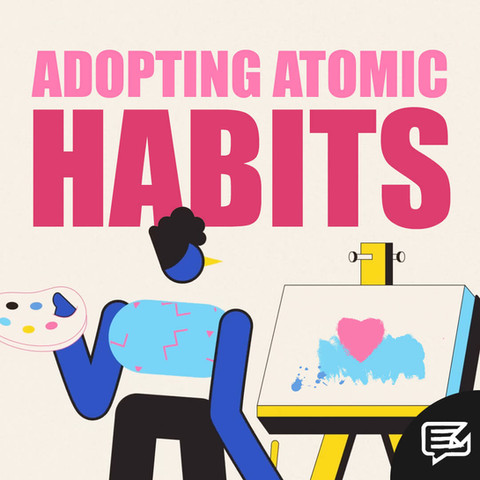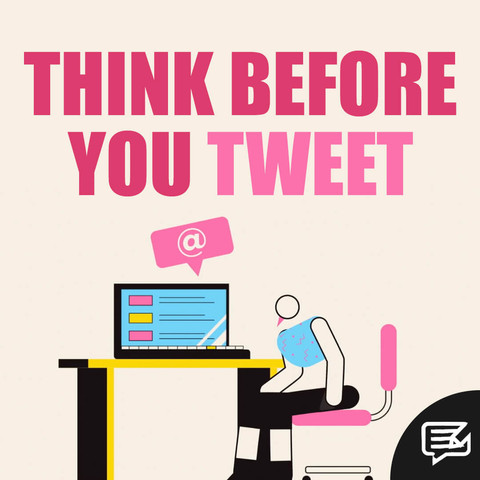
05.06.23
THINKING AGAIN WITH ADAM GRANT
If you’ve only heard of Adam Grant from his excellent WorkLife podcast and thought his talents end there, think again… Not only is Grant a successful organisational psychologist and TED talk extraordinaire, he’s also a New York Times bestselling author boasting a back catalogue that’s been translated into 35 languages.
His books include Option B (with Sheryl Sandberg), Give and Take, Originals, and Think Again. Or to give its full title Think Again: The Power of Knowing What You Don’t Know. As the title suggests, Grant invites readers to consider the value of rethinking; revisiting old assumptions and acknowledging the power of redrafting.
The phrase ‘back to the drawing board’ is typically preceded by demoralised sighs of ‘oh well.’ Not once have I heard it uttered in a positive fashion: ‘Ah great, this means we can go back to the drawing board and create an EVEN BETTER version of this thing that we’ve already spent weeks and months of our lives working on…’ It just doesn’t happen. But perhaps it should.



In Think Again, Grant shares an anecdote about Ron Berger, an educationalist, who was intent on helping students embrace confusion, rather than erasing it. In architecture and engineering lessons, Berger required his students to draft at least four different blueprints for building a house. While other teachers warned him that younger students could become discouraged, Berger remained resolute:
“Quality means rethinking, reworking, and polishing,” Berger reflected. “They need to feel they will be celebrated, not ridiculed, for going back to the drawing board... They soon began complaining if I didn’t allow them to do more than one version.”
Grant writes:
“I believe that good teachers introduce new thoughts, but great teachers introduce new ways of thinking. Collecting a teacher’s knowledge may help us solve the challenges of the day, but understanding how a teacher thinks can help us navigate the challenges of a lifetime. Ultimately, education is more than the information we accumulate in our heads. It’s the habits we develop as we keep revising our drafts and the skills we build to keep learning.”
The same principle could be applied to managers in the workplace.
Too often, new starters are taught the ropes in the same manner as their predecessors and those before them. Bad habits and outdated ways of working are passed down, caveated by statements such as: ‘it’s how we’ve always done things,’ or ‘that’s just the way it is.’
It’s arguably not a case of merely rethinking old assumptions. We need to actively challenge them. But in order to do so, we must first cultivate an environment of psychological safety.
Psychological safety is not about relaxing standards, or biting your tongue to ensure a pleasant and agreeable atmosphere at all times. It’s about fostering a climate of respect, trust, and openness in which people can raise concerns and suggestions without fear of reprimand. In other words, it’s the foundation of a learning culture.
By contrast, a performance culture focused on results often undermines psychological safety. When we witness others get punished for mistakes, we shift our focus to proving our competence and protecting our careers. It doesn’t pay to take risks in a performance culture. This can lead to a lack of confidence in our own expertise and a reluctance to ever admit that we might well benefit from ‘going back to the drawing board.’
(FYI - I recently published a video about ‘just culture’ and how the fear of reprimand leads to self-limiting behaviours which you may find interesting)
So, we’ve successfully cultivated a culture of psychological safety. What next?
Now, it’s time to challenge the ‘big boss’…
When you think of Apple’s renaissance in the noughties, the first person that springs to mind is likely Steve Jobs: a lone genius with a vision for the future which changed the way we communicate and consume. But that’s not the whole picture…
In reality, Jobs was dead-set against the mobile phone category. It was his employees who had the vision for it, and had it not been for them the tech landscape of the 21st century might have looked wildly different.
Grant writes:
“Research shows that when people are resistant to change, it helps to reinforce what will stay the same. Visions for change are more compelling when they include visions of continuity. Although our strategy might evolve, our identity will endure.”
He continues:
“The engineers who worked closely with Jobs understood that this was one of the best ways to convince him. They assured him that they weren’t trying to turn Apple into a phone company. It would remain a computer company – they were just taking their existing products and adding a phone on the side… After six months of discussion, Jobs finally became curious enough to give the effort his blessing, and two different teams were off to the races… Just four years after it launched, the iPhone accounted for half of Apple’s revenue.”
It feels like a side of Steve Jobs that we rarely hear about; where he was willing to listen and take a leap of faith. If you ask Google what words best describe Jobs, you get ‘brilliant’, ‘visionary’ and ‘fearless’. The search also returns ‘competitive’, ‘perfectionist’ and ‘a**hole.’
If I were to add two words to the list, they would be ‘good judge.’
Grant writes:
“The curse of knowledge is that it closes our minds to what we don’t know. Good judgment depends on having the skill – and the will – to open our minds.”
And that is where Jobs succeeded where others (notably Mike Lazaridis, of Blackberry) failed...
Grant explains:
“In rigorous studies of leadership effectiveness across the United States and China, the most productive and innovative teams aren’t run by leaders who are confident or humble. The most effective leaders score high in both confidence AND humility. Although they have faith in their strengths, they’re also keenly aware of their weaknesses. They know they need to recognize and transcend their limits if they want to push the limits of greatness.”
‘Confident humility’, as Grant describes it, doesn’t just open our minds to rethinking – it improves the quality of our rethinking.
He explains:
“In high school, students who admit when they don’t know something are rated by teachers as learning more effectively and by peers as contributing more to their teams. At the end of the academic year, they have significantly higher math grades than their more self-assured peers. Instead of just assuming they’ve mastered the material, they quiz themselves to test their understanding.”
And the ‘power of knowing what you don’t know’ continues into adulthood.
You’re likely familiar with the term ‘imposter syndrome’ – a psychological occurrence in which people doubt their skills, talents, or accomplishments and have a persistent internalised fear of being exposed as frauds.
But have you ever considered that such thoughts can actually motivate us to work smarter? When we don’t believe we’re going to win, we have nothing to lose by rethinking our strategy. Grant explains:
“Feeling like an impostor puts us in a beginner’s mindset, leading us to question assumptions that others have taken for granted.”
I like to think of an imposter mindset like a spotlight, shining inward, highlighting where the gaps in our experience and knowledge are. Sure, it’s not pleasant to feel like a fraud, but KNOWING where your limitations lie enables you to address them.
As Grant puts it: “If knowledge is power, knowing what you don’t know is wisdom.” And who wouldn’t want to be wise?
In 2012, Art Markman (a professor of psychology and author of Smart Thinking) wrote a short but thought-provoking piece for the Harvard Business Review:
“An undiagnosed gap in knowledge means you might not fully understand a problem. That can hinder innovative solutions… When you do uncover these gaps, treat them as learning opportunities, not signs of weakness. After all, successful innovation rests on the assumption that you and the people around you have a high-quality understanding of the problem. Sometimes, uncovering the flaw in that assumption will help you find a solution.”
Food for thought. Or should that be re-thought?

























































